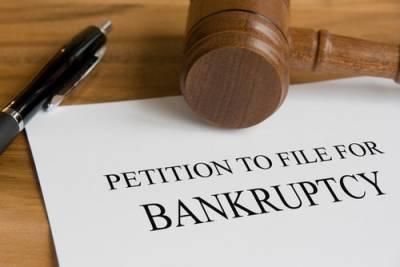What Are the Differences Between Chapter 7 and Chapter 13 Bankruptcies?
 Bankruptcy is a legal situation that allows a person or company to get rid of or reorganize their debts and obtain a fresh start. There are several types of bankruptcy available, with two of the most common forms being Chapter 7 and Chapter 13. Today, we will discuss the differences between Chapter 7 and Chapter 13 bankruptcy to help you better understand which option may be right for you. The bankruptcy process can be daunting and complex, which is why it is critical to hire an experienced bankruptcy attorney to guide you through the process from beginning to end.
Bankruptcy is a legal situation that allows a person or company to get rid of or reorganize their debts and obtain a fresh start. There are several types of bankruptcy available, with two of the most common forms being Chapter 7 and Chapter 13. Today, we will discuss the differences between Chapter 7 and Chapter 13 bankruptcy to help you better understand which option may be right for you. The bankruptcy process can be daunting and complex, which is why it is critical to hire an experienced bankruptcy attorney to guide you through the process from beginning to end.
What to Know About Chapter 7 Bankruptcy
Chapter 7 bankruptcy, or liquidation bankruptcy, involves liquidating the debtor's non-exempt assets to pay off debts. This process typically takes four to six months to complete and offers the opportunity for a discharge of most unsecured debt, such as credit card debt, medical debt, and personal loans. However, not all debts, such as student loans, child support or alimony payments, and certain taxes, can be discharged.
To qualify for Chapter 7 bankruptcy, you must pass a means test that examines your income and expenses. If your income is below Texas's state median income level, you will likely be eligible for Chapter 7 bankruptcy. If it is above the state median, you may still be eligible, but you must show that you do not have enough disposable income to pay off your debts through a Chapter 13 plan.
What to Know About Chapter 13 Bankruptcy
Chapter 13 bankruptcy, also known as reorganization bankruptcy, also known as reorganization bankruptcy, involves a repayment plan that lasts three to five years. Under this plan, the debtor must typically pay back a percentage of their debt, including secured debt such as mortgages and car loans, unsecured debts, or both. This option can be particularly useful for individuals behind on mortgage payments or who have significant amounts of non-dischargeable debt, such as tax or student loans. To qualify for Chapter 13 bankruptcy, you must have a regular income, and your debts must fall within certain limits. Additionally, there are limits on the amount of secured and unsecured debt you can have, which can vary depending on where you live.
Key Difference Between Chapter 7 and Chapter 13 Bankruptcy
An important difference between the two forms of bankruptcy is the impact on credit. While both types of bankruptcy will negatively impact your credit, Chapter 7 remains on credit reports for ten years, while Chapter 13 will only stay on your report for seven years. Additionally, some types of bankruptcy can impact your ability to get certain types of credit, such as car loans or mortgages, for a period after discharge.
Contact a Kerrville Bankruptcy Attorney
Contact the skilled New Braunfels bankruptcy lawyer with Law Offices of Chance M. McGhee for legal representation in your bankruptcy matter. Call 210-342-3400 for a free consultation.
Sources
https://www.irs.gov/businesses/small-businesses-self-employed/chapter-13-bankruptcy-voluntary-reorganization-of-debt-for-individuals
https://www.irs.gov/businesses/small-businesses-self-employed/chapter-7-bankruptcy-liquidation-under-the-bankruptcy-code






